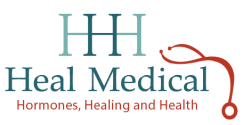An anabolic hormone
Dehydroepiandrosterone (DHEA), sometimes called the “Mother Hormone” because it can convert into all the other hormones, is secreted primarily by the adrenal glands. It leads to an anabolic or protein building state as opposed to a catabolic or breaking down state.
DHEA functions
DHEA is highest in teens and early 20s and declines with aging. It particularly declines with stress and adrenal depletion and low levels of DHEA are associated with hair loss and increased respiratory infections (colds and other viruses especially). DHEA, along with testosterone, helps to promote emotional stability and strength – that feeling of “I can do whatever I need to do”. It is a powerful immune modulator and is currently being developed by a pharmaceutical company as a treatment for lupus. Because of its immune effects, it has anti-cancer properties.
DHEA improves memory, increases energy and decreases the risk for heart disease and diabetes. It improves insulin resistance by decreasing visceral fat in Type II diabetics and decreases the risk for blood clots by inhibiting platelet aggregation. It improves bone density, decreases fatigue, improves depression and mood disorders and serves as an antioxidant. Don’t think it is a cure all, though – DHEA has not been shown to reverse the aging process (nothing has, the sands of time are relentless). While, controversies exist as to the benefits of DHEA, I believe ample literature is available to support its benefit. Many books and articles are available to help you understand DHEA. Dr. Neal Rouzier has an extensive list of articles supporting the benefits of DHEA and Amazon has a long list of books regarding DHEA.
Supplementing DHEA
DHEA is a powerful hormone and though available over the counter, I would strongly recommend that you consult with a practitioner that is familiar with prescribing DHEA. I recommend a sustained release compounded formula, and follow levels and symptoms to achieve optimal levels and benefit. DHEA can lead to increased acne, particularly in women. This can be managed with a prescription medication called sprionolactone. Men can tolerate much higher doses and also have higher levels.
DHEA is a hormone that belongs in our toolbox and can greatly benefit our health when prescribed and monitored for optimal levels and side effects. It is a critical hormone to replace with aging and in those suffering from stress overload and adrenal depletion. It should be a part of any hormone replacement regimen.
To learn more, I recommend Neal Rouzier’s “How to Achieve Healthy Aging”.




[…] needs cortisol to govern its function. The production of progesterone, estradiol, testosterone, DHEA, pregnenelone; all hormones of the steroid hormone cascade, will decrease and shunt the pathway to […]
[…] for all the other steroid hormones: progesterone, cortisol, estradiol, testosterone, and DHEA. Like the other steroid hormones, pregnenolone declines with age to less than 60% of youthful […]
[…] decline in hormones DHEA, testosterone, progesterone and estradiol causes accelerated bone loss. Hormone replacement therapy […]